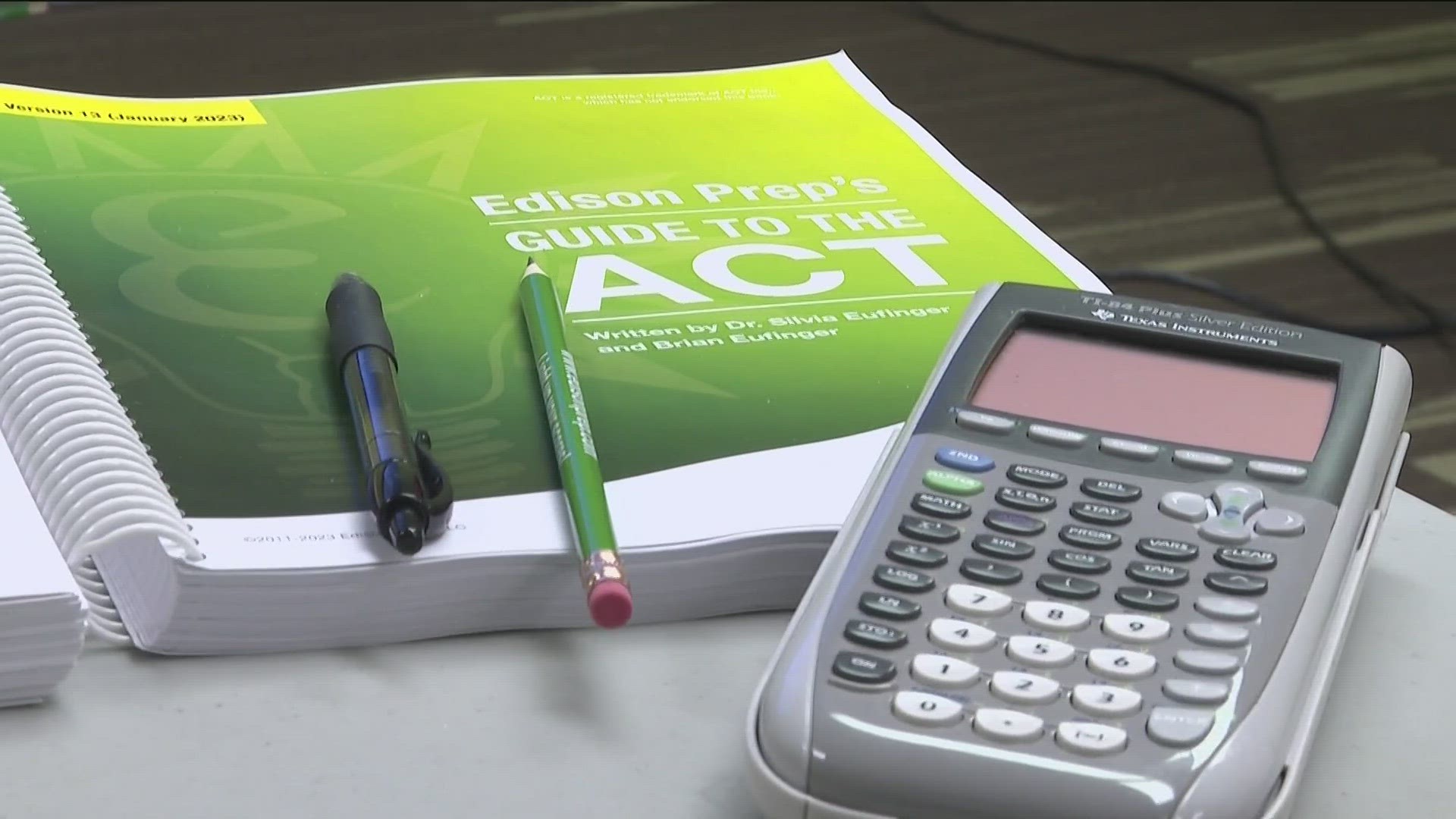ATLANTA — For many high school-aged students across the country, it's time to get their academic resumes in shape to share with potential colleges, but what should students consider when finding a perfect match for higher education?
Atlanta Public School Counselor Dr. Kenya Gilliard recommends considering the acronym M.A.T.E. when applying for colleges.
"M" stands for finding your major
"No matter where you go, you want to make sure the school actually has your major, because the post-secondary institutions can be great, but if they don't have what you want to study, then that kind of takes them off the list," Dr. Gilliard recommended.
"A" stands for academic profile
"What's on your transcript? What's in your G.P.A. and how does that fit in terms of where you want to go to school with the team?" she added.
"T" is for test scores
"How does your A.C.T. score match up for placement in terms of where you want to go?" she added.
"E" stands for extracurricular activities
"By eighth grade, you definitely want to start having those conversations so that when you start in high school, you can start your transcript right on point and then begin exploring your options from there," she said.
Students "M.A.T.E." can also help pave the way to a better G.P.A. and scholarships.
"With the HOPE scholarship this year, we are very happy that the legislature made some changes. If students graduate with a G.P.A. - that's in english, math, science, social studies and world language classes - with a score of 3.0 or better, then 100% of their tuition is covered," Dr. Gilliard said.
The Georgia Futures Website is another excellent resource for financial planning and scholarships.
"The average cost of attending [college] is around $25,000 a year. That's on the lower end for some institutions, the higher end for others," she said. "In four years, you're talking about like a $100,000 investment. It's expensive and it takes some conversation and some planning to make that happen.”
But how important is the "T" in "M.A.T.E." now that some schools are test-optional?
S.A.T. and A.C.T. tutor Brian Eufinger with Edison Prep said it's essential to research and read the fine print. Some schools, for example, will only let you apply without test scores depending on the major you're selecting or the school within the university you're applying to.
"There are places where if you do not submit scores, you might have to take placement exams or remedial classes that don't count for graduation purposes, which could delay graduation and therefore increase costs," he explained. "That's a trap door. There are kids who totally could have just taken the test and got a good enough score.”
Eufinger said that while some schools are test-optional, most times, sending scores could increase a student's chances of getting in.
"In general, sending scores gets you in at a much higher rate. Boston College, for example, 270% as often," he said.
Take Auburn University, for example.
"Those who applied with scores got in 47% of the time (at Auburn University) and those who apply without scores from out of state got in just 5-7% of the time. It’s an 800% gap," he added.
Despite some schools becoming test-optional, he said their business has increased tremendously. Edison Prep has tested about 6,000 kids since COVID-19 started.
"I'm exhausted," he said. "I'm doing more hours than ever, even despite us growing from two to 11 people."
The S.A.T. exam will be fully digital come March 2024 and will shrink to two hours.
College-student hopefuls can take the tests unlimited times, and some schools will let them "super score" or submit their best score for each subject.
But Eufinger said students' priority should be keeping their G.P.A. up.
“If you have some big 'oopsiesis' on the G.P.A. front freshman year, a good score in the A.C.T. Is not going to fix a bunch of gpa sins, so keep your grades up," he recommended.
Some website resources recommended by Dr. Gilliard and Eufinger:
External scholarships:

